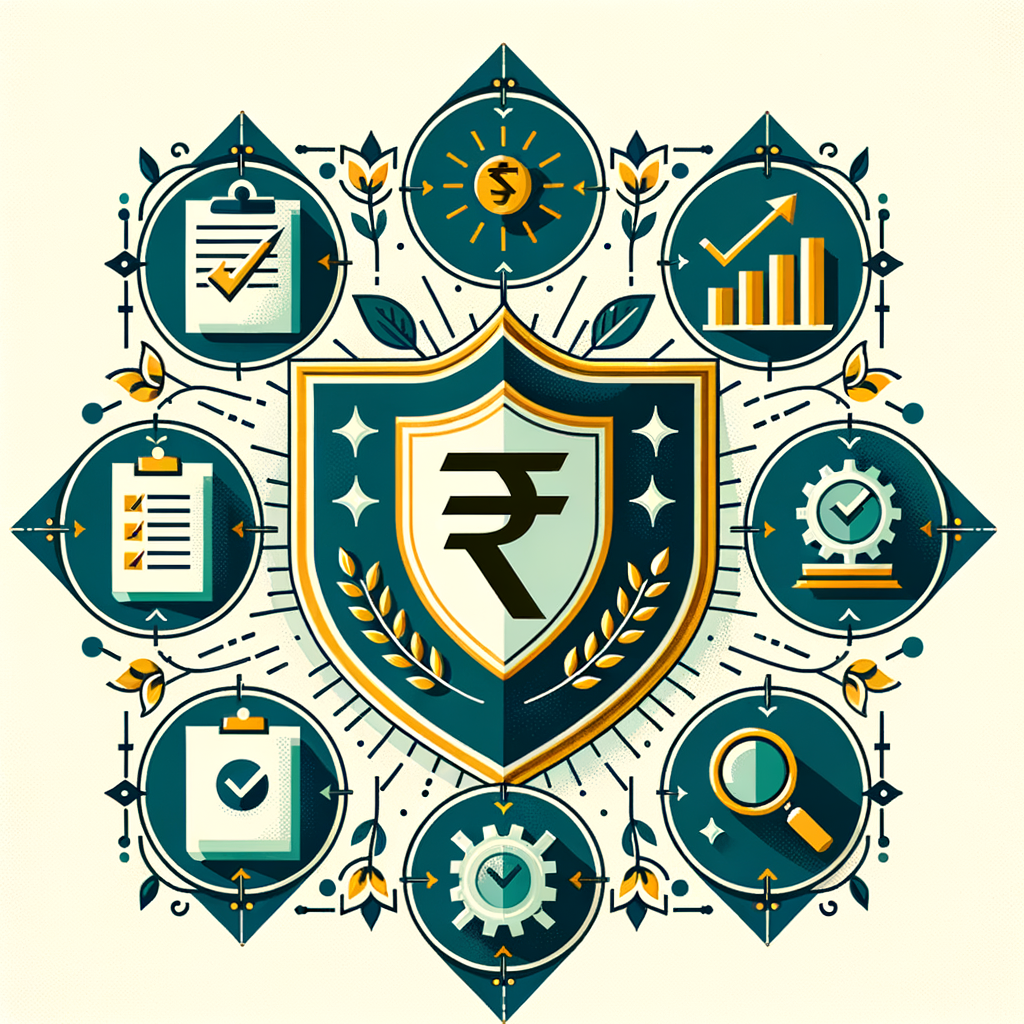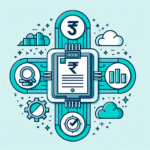A Comprehensive Guide to Exempted Goods and Services Under GST 2025
While the Goods and Services Tax (GST) has streamlined India’s indirect tax system, applying to most products and services, there are crucial exceptions that every business owner and citizen should know. A clear understanding of exempted goods and services is fundamental not just for compliance but also for effective financial planning. These are specific supplies that do not attract any GST, forming a special category designed to support essential sectors and protect consumers from an increased price burden on basic necessities.
This topic is vital for everyone. For small business owners, it directly impacts pricing strategy, compliance procedures, and, most importantly, the rules around claiming Input Tax Credit (ITC). Misunderstanding these rules can lead to financial loss and non-compliance penalties. For salaried individuals and households, it explains why certain essential items like fresh milk, vegetables, and healthcare services are kept outside the tax net, leading to better financial awareness. This guide will provide a clear breakdown of the GST exempted items list, explain the key differences between various types of supplies, and explore the impact these exemptions have on your business and the economy.
What Are Exempted Goods and Services Under GST?
In simple terms, an exempt supply under GST is any good or service that is not subject to the Goods and Services Tax. This means that when a business sells an exempt item, it cannot charge GST to the customer. The most critical consequence of this for a business is that it also cannot claim Input Tax Credit (ITC) on the raw materials, inputs, or input services used to produce that exempt supply. This is a core principle in understanding GST exemptions for businesses; the chain of tax credit breaks when an exempt item is involved. The cost of the tax paid on inputs becomes a part of the business’s operational cost, which may then be factored into the final price of the product or service.
Exempt vs. Zero-Rated vs. Nil-Rated Supplies: A Clear Distinction
The terms “exempt,” “zero-rated,” and “nil-rated” are often used interchangeably, but they have distinct legal meanings and implications under GST. Getting this distinction right is crucial for correct tax treatment and ITC claims.
| Feature | Exempt Supplies | Zero-Rated Supplies | Nil-Rated Supplies |
|---|---|---|---|
| GST Rate | Not applicable (outside the tax net) | Taxable at a 0% rate | Taxable at a 0% rate |
| Input Tax Credit (ITC) | Cannot be claimed | Can be claimed | Cannot be claimed |
| Primary Scope | Essential goods/services for domestic consumption. | Exports and supplies to Special Economic Zones (SEZs). | Basic necessities listed in the GST tariff. |
| Example | Fresh fruits, healthcare services, residential rent. | Export of software services, goods sold to an SEZ developer. | Salt, unbranded grains, jaggery. |
The key takeaway is that zero-rated supplies are part of the GST value chain, allowing businesses (like exporters) to claim refunds on the ITC they have accumulated. This makes Indian exports more competitive in the global market. In contrast, both exempt and nil-rated supplies break the ITC chain.
Who Decides GST Exemptions in India?
GST exemptions are not arbitrary. They are decided by the Central Government based on recommendations from the GST Council, the apex decision-making body for GST in India. These decisions are made in the “public interest” to achieve specific socio-economic objectives, such as making healthcare and education more affordable or supporting the agricultural sector. These exemptions are formally announced through official notifications. For a deeper look into the council’s functioning, you can visit the official GST Council website.
The Official GST Exempted Items List for 2025
The list of goods and services exempt from GST is extensive and can be updated by the GST Council from time to time. Below is a categorized overview of the most common items and services relevant to daily life and business operations.
Common Exempted Goods
These items are generally unprocessed or are considered basic necessities for households.
- Food Items: Fresh milk, pasteurised milk (not in a container with a brand name), fresh fruits and vegetables, eggs, curd, lassi, fresh meat and fish (not processed or frozen), natural honey, bread (excluding pizza bread), salt, and unbranded food staples like atta, maida, and besan.
- Raw Materials: Raw silk, silk waste, raw wool (not processed), khadi fabric, cotton used for khadi yarn, raw jute fibres, and firewood or charcoal.
- Tools & Instruments: Agricultural implements that are manually operated or animal-driven, as well as aids and implements for physically challenged persons.
- Other: Printed books (including braille books), newspapers, journals, maps, pooja items (like rudraksha, vibhuti, kumkum), and national flags.
Key Exempted Services
The service sector also has a significant list of exemptions, primarily focusing on social welfare, infrastructure, and essential financial services.
- Healthcare Services: Services provided by a clinical establishment, an authorised medical practitioner, or paramedics are exempt. This includes diagnosis, treatment, and care. Ambulance services are also exempt.
- Education Services: Services provided by an educational institution (from pre-school to higher secondary) to its students, faculty, and staff are exempt. Services related to conducting examinations are also exempt.
- Financial Services: Services by the Reserve Bank of India (RBI) are exempt. Crucially for the common person, interest earned on loans, deposits, or advances is exempt from GST.
- Transportation Services: Services of public transport in a non-air-conditioned contract carriage or stage carriage are exempt. This includes transport by metro, local trains, auto-rickshaws, and metered cabs.
- Accommodation Services: Staying in a hotel, inn, or guesthouse with a tariff of declaration below ₹1,000 per day is exempt from GST.
- Real Estate Services: The service of renting a residential dwelling for use as a residence is exempt.
Major GST Exemption Categories in India
Beyond individual items, the government has provided broad exemptions to support key sectors of the economy.
- Agricultural Services: A wide range of services related to agriculture are exempt. This includes cultivation, harvesting, warehousing, supply of farm labour, and processes like fumigation in a warehouse.
- Government Services: Most services provided by the Central Government, State Government, or a local authority are exempt. However, certain services like those by the Department of Posts (e.g., speed post), transportation of goods or passengers, and services to business entities are taxable.
- Legal Services: Services provided by an arbitral tribunal or a senior advocate to any person other than a business entity, or to a business entity with an aggregate turnover below the GST registration threshold in the preceding financial year, are exempt.
Disclaimer: The list of exempted goods and services GST India is dynamic and subject to change based on the GST Council’s recommendations. For the most current and exhaustive list, always refer to the official notifications on the CBIC website.
How Do GST Exemptions Impact Your Small Business?
For small business owners, dealing with exempt supplies introduces specific challenges and considerations that go beyond simply not charging tax. It has a direct impact on your cash flow, pricing, and compliance activities.
The Critical Role of Input Tax Credit (ITC)
The most significant impact is on Input Tax Credit. As mentioned earlier, if your business deals exclusively in exempted goods and services, you cannot claim ITC on any of your business purchases, be it raw materials, capital goods, or services like rent, telephone bills, or professional fees.
- Example: A local bookstore that only sells printed books (which are exempt) purchases new shelves for ₹50,000 plus 18% GST (₹9,000). Because its final product is exempt, the bookstore cannot claim the ₹9,000 as ITC. This ₹9,000 becomes a part of the cost of the shelves, directly impacting the business’s capital expenditure.
- Mixed Supplies: The situation gets more complex if your business sells both taxable and exempt items (e.g., a grocery store selling fresh vegetables (exempt) and packaged biscuits (taxable)). In such cases, you must reverse the ITC that pertains to the inputs used for making the exempt supplies. This requires careful accounting and apportionment of credits as per GST rules, making compliance more challenging. For a detailed explanation of this process, see our guide on Understanding Input Tax Credit Reversals and Their Role in GST Demand Notices.
Pricing and Competitiveness
Since the GST paid on inputs becomes a cost for a business dealing in exempt supplies, this cost is often passed on to the final consumer. This “tax sticking” can sometimes make the exempt good more expensive than it would be if it were part of the ITC chain. Businesses must carefully factor in these embedded taxes when setting their prices to remain competitive while protecting their profit margins.
Compliance and Reporting Requirements
Even if your business’s turnover consists entirely of exempt supplies, you have reporting obligations. Details of exempt, nil-rated, and non-GST outward supplies must be correctly declared in your GST returns, specifically in Table 8 of GSTR-1 and Table 3.1(c) of GSTR-3B. To learn the complete filing process, you can follow our guide on How to File GST Returns Online: A Step-by-Step Guide of the GST Filing Process & Procedure. Accurate reporting is crucial for maintaining a clean compliance record. For expert help with your GST filings, including GSTR-1 and GSTR-3B, consider TaxRobo’s comprehensive GST services.
The Impact of GST Exempted Goods on Tax Revenue
The policy of providing exemptions is a deliberate economic choice with significant consequences. The primary reason behind maintaining a list of exempted items is social welfare. By keeping essential goods and services like basic food items, healthcare, and education out of the GST net, the government aims to ensure they remain affordable and accessible to all sections of society, especially the economically weaker ones. It also aims to protect and promote key sectors like agriculture, which forms the backbone of the Indian economy.
However, this creates an economic trade-off. The impact of GST exempted goods on tax revenue is a reduction in the overall tax base. A narrower tax base means the government collects less revenue than it could if all goods and services were taxed. This can also lead to distortions in the supply chain due to the breakage of the ITC chain, sometimes referred to as tax cascading. The government and the GST Council constantly evaluate this trade-off, balancing the need for revenue with the social objectives of the nation.
Conclusion
Understanding the nuances of exempted goods and services is non-negotiable for any entrepreneur or financially savvy individual in India. It’s a concept that directly influences business profitability, compliance, and household budgets.
To summarize the key takeaways:
- Exempt supplies attract no GST, and consequently, no Input Tax Credit can be claimed on the inputs used to produce them.
- It is crucial to know the difference between exempt, nil-rated, and zero-rated supplies, as it has a major impact on ITC eligibility, especially for businesses involved in exports.
- For business owners, dealing in exempt supplies means absorbing the tax paid on inputs as a cost, which affects pricing and requires meticulous reporting in GST returns.
The world of GST is ever-evolving. Staying updated on the latest notifications regarding exemptions and other rules is key to ensuring your business’s financial health and full compliance.
Navigating GST exemptions, ITC reversal rules, and reporting requirements can be complex. If you need clarity on how these rules apply to your specific business, schedule a consultation with TaxRobo’s GST experts today! We ensure your business remains 100% compliant and financially efficient.
Frequently Asked Questions (FAQs)
1. What is the main difference between exempted and nil-rated goods under GST?
Answer: An exempt supply is not taxable under GST at all, as it’s kept outside the purview of the tax by a specific notification. A nil-rated supply is technically a taxable supply, but the GST rate currently applicable to it is 0%. While the end result is similar (no GST is collected, and no ITC can be claimed), the legal distinction is important for classification and reporting purposes.
2. Do I need a GST registration if my business only sells exempted goods?
Answer: No. If your entire business turnover consists of goods or services that are fully exempt from GST, you are not required to obtain GST registration, irrespective of how high your turnover is. For businesses that deal with both exempt and taxable goods, our Ultimate Guide to GST Registration for Small Businesses provides complete details.
3. Can I claim Input Tax Credit (ITC) on inputs used to provide exempted services?
Answer: No. According to Section 17(2) of the CGST Act, you cannot claim ITC on inputs and input services that are used for making exempt supplies. This is a fundamental principle of the GST framework to prevent a break in the credit chain from benefiting the supplier of exempt services.
4. Where can I find the official list of exempted goods and services GST India?
Answer: The most reliable and up-to-date source is the official website of the Central Board of Indirect Taxes and Customs (CBIC). You should regularly check the “GST” section for new notifications and circulars that list or amend the items exempt from GST.



